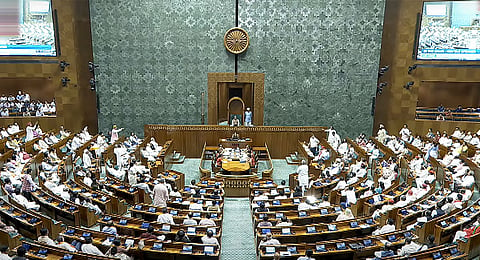

NEW DELHI: In a move likely to spark heated debates and become a significant political issue for the Opposition, the Modi government is reportedly preparing to introduce a Bill in Parliament proposing 40 amendments to the Waqf Act. The proposed amendments received the NDA-III government's nod during a late evening meeting of the Union Cabinet on Friday.
Though no official statement has been released by the government yet, sources and two Delhi dailies have reported that the Bill could be presented in Parliament this week. The amendments aim to address longstanding issues surrounding the administration of waqf properties, which are among the country's largest landholdings.
The proposed amendments are part of a broader strategy by the NDA-III government under Prime Minister Narendra Modi. If the Bill is moved in Parliament, it would seek to establish stricter guidelines for the declaration and management of waqf lands, ensuring greater transparency and accountability.
Key provisions of the likely Bill may include the appointment of independent auditors to review the administration of waqf properties and guidelines for waqf lands. Speculation also suggests the amendments may propose enhanced powers for the central government to intervene in cases of significant mismanagement or fraud.
Sources in the government suggest that this legislative move is designed to address concerns raised by various stakeholders about the effectiveness of current regulations. The bill is expected to spark a heated debate in Parliament, with supporters arguing that these reforms are necessary for better governance, while opponents view it as an infringement on religious autonomy.
Currently, 30 Waqf Boards operate across India's 28 states and Union Territories, following the enactment of the Waqf Act, 1995, which was designed to streamline "Auqaf" (property owned by Waqf Boards). The Bill may propose fresh verification of boards' assets. In 2023, the Delhi High Court directed the Central Government to carry out a physical verification of 123 properties owned by the Delhi Waqf Board in the national capital. Additionally, the Bill may propose ensuring a reservation for women in the Central and State Waqf Boards by mandating verification of land before it is declared waqf property.
This significant legislative move is poised to be a focal point in the upcoming parliamentary sessions, highlighting the ongoing debate between governance reform and religious autonomy.